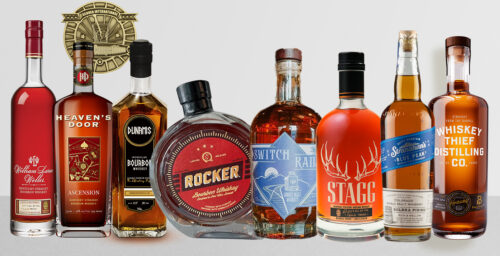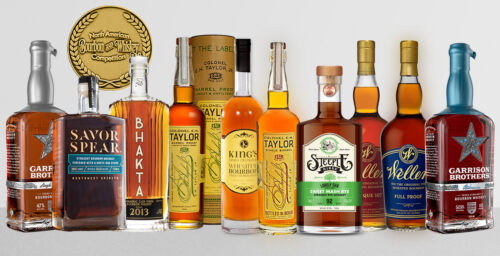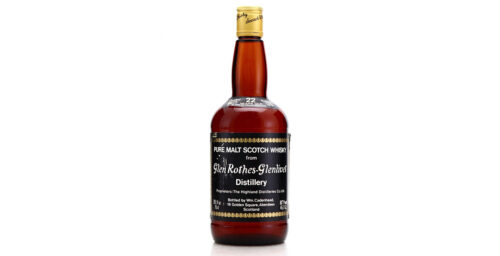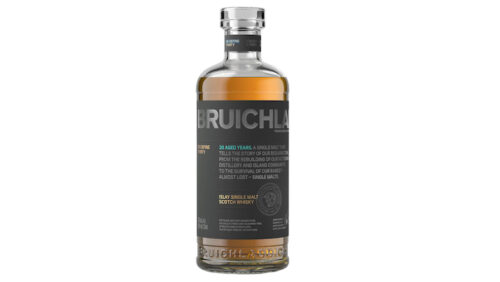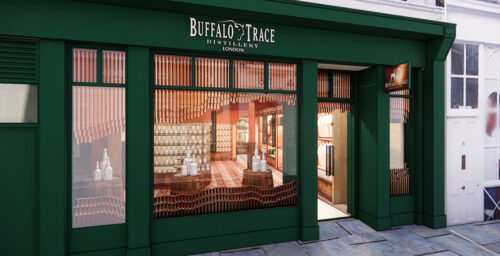HB100 has cleared the Kentucky legislature and awaits signature by Governor Matt Bevin. The new ‘vintage spirits’ rules it contains get all the attention, but HB100 includes several other revisions to Kentucky’s basic law regulating alcoholic beverages.
Tucked into the back of the revised legislation is a change of just a few words, added to what is required if a producer wants to identify Kentucky as the place of origin for a whiskey. Kentucky law has long required that whiskey must be aged in Kentucky for at least one year to say ‘Kentucky’ on the label. To that, HB100 adds that the whiskey must also be made “from grains which are cooked, fermented, and distilled” in Kentucky.
This change seems to plug a loophole, albeit prophylactically. There is no evidence that anyone has distilled whiskey in another state, aged it in Kentucky, and tried to pass it off as Kentucky bourbon, as the current wording seems to allow. There was, however, some concern that one major distiller might do it.

That company was Diageo, which operates the George Dickel Distillery in Tennessee. Three years ago, Diageo was dinged by the Tennessee ABC for removing 16,000 barrels of Dickel-made whiskey from the state over a five-year period, in violation of a Tennessee law that says whiskey distilled in Tennessee must be aged in Tennessee, in the same county where it was made, or a county adjacent to that county.
But Dickel’s warehouses were full, so excess production was sent to Diageo’s Stitzel-Weller facility in Kentucky for aging while new warehouses were built in Tullahoma. The whiskey was bourbon, not Tennessee whiskey, i.e., it had not been charcoal filtered before barreling.
By the time Tennessee’s ABC got around to citing Diageo for the violation, Dickel’s new warehouses were completed and the shipments ended. Diageo got off with a slap on the wrist but it raised the possibility that some or all of that Tennessee-made bourbon would claim Kentucky origin, which the law seemed to allow. It didn’t, but this alerted Kentucky distillers to the possibility.
Some observers wondered if this change might be aimed at Indiana’s MGP distillery, but MGP has its own warehouses in Indiana and is building more. Most of the whiskey they produce is aged there. But there is still the possibility that someone might try that in the future, since most of the whiskey MGP makes is marketed by someone else. You never know.
Better safe than sorry.
As for the ‘vintage spirits’ provisions, they will allow licensed retailers to acquire ‘vintage spirits’ on the secondary market for legal resale. A close reading of the proposed law reveals a few matters not mentioned in any of the immediate media coverage. The new law won’t officially take effect until January 1, 2018 and it provides that “a person holding a license to sell distilled spirits … may sell vintage distilled spirits purchased from a nonlicensed person upon written notice to the department in accordance with administrative regulations promulgated by the department.” (Emphasis added by me.)
Those ‘administrative regulations’ do not exist yet. The statute as written merely requires a record of the transaction, but the Kentucky ABC may not interpret it that way. Since the statutory definition of ‘vintage spirits’ is vague, ABC may establish something similar to the TTB’s label approval process, in which they will decide on a case-by-case basis if a ‘vintage’ product proposed for sale meets the law’s criteria. Pre-Prohibition Old Belmont, yes. Last year’s release of Pappy 23, no. How the ABC will make its determination is unknown, as is whether the legislature will pay for the added bureaucracy. But if they do set up an approval process the findings likely will be public information, so a de facto registry of approved ‘vintage spirits’ will be created.
We won’t know how the law will be administered until after it becomes law.



